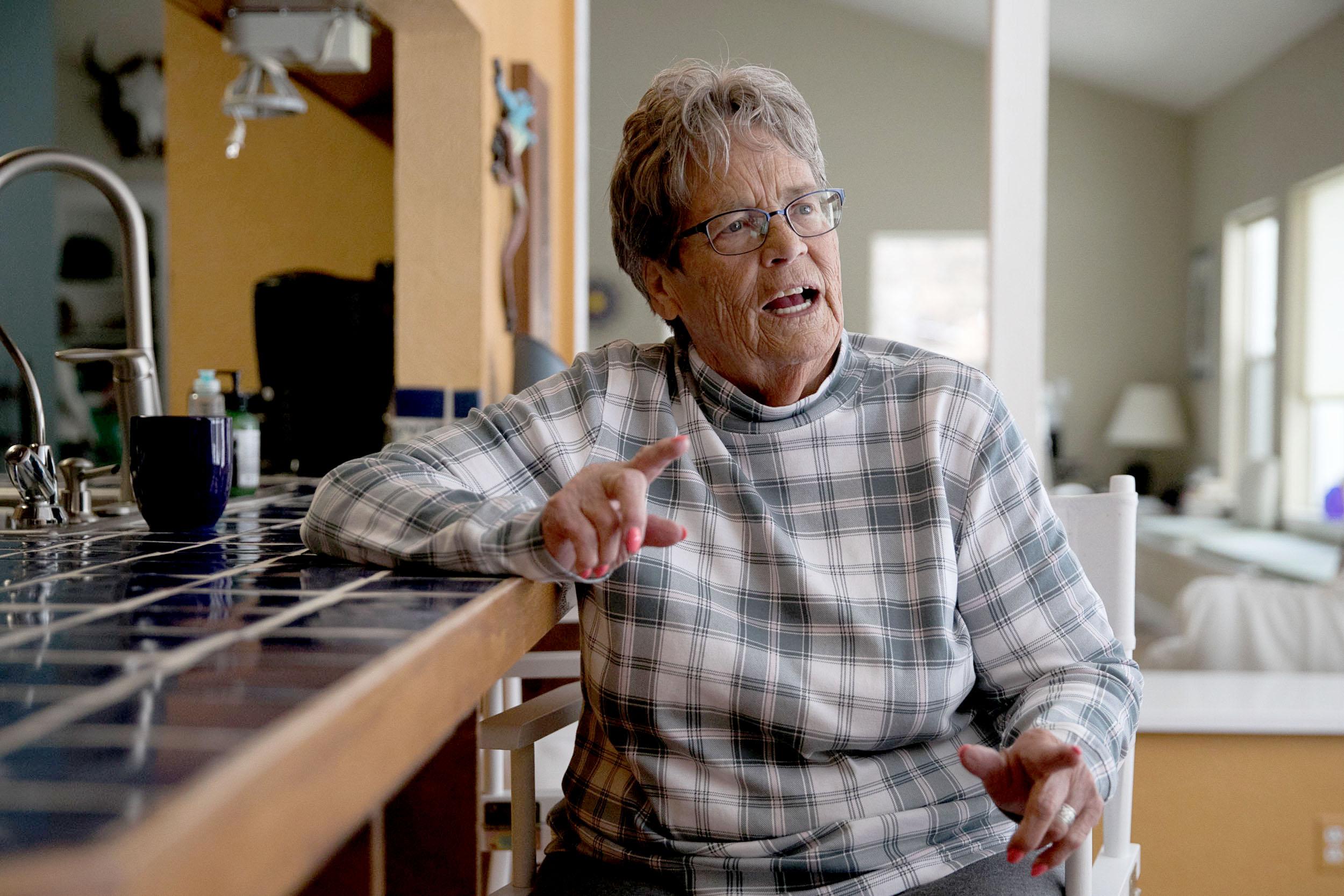
Issue voters have traditionally been easy to classify in American politics. There are voters for free trade, family values, gun control or Second Amendment protections and both sides of the abortion debate.
You can count 80-year-old KSue Anderson in the climate camp. The lifelong registered Democrat can’t get it out of her head. As she looked out the window of her Denver bungalow, she said it’s just… different out there.
“The winters are warmer than they used to be. We don’t get as much snow as we used to. And when we get it, it comes in huge things,” said Anderson as she surveyed the results of a recent Colorado snowstorm.
The state has seen a new record high temperature, a huge hailstone, a bomb cyclone, cooler spring temperatures that led to some great bird-watching and a seasonal monsoon that sputtered out. Even the fall leaf change was a bit late.
Are these events part of the cyclical nature of things, or tied to a changing climate?
Between 2014 and 2019 the number of Americans alarmed about climate change nearly tripled according to the Yale Program on Climate Communications. The Pew Research Center is noting a similar recent rise in concern, mostly among Democrats.
Exit polls in Iowa and New Hampshire show climate change along with health care near the top of the list of concerns for primary and caucus voters. A recent survey by CPR of voter voices across the state shows climate among their major concerns.
“More than a decade ago climate change seemed far away and it seemed distant from Americans’ everyday experience. That’s not so much anymore,” said Cary Funk, director of science and society research at Pew.
Funk said concerns have risen, mostly among Democrats, although there are pockets of concern among Republican millennials and some independents. The most recent Pew survey on climate noted 90 percent of Democrats think the U.S. government is doing too little on climate change compared to 40 percent of Republicans.
One of the biggest drivers behind the opinion are changes in the weather.
Americans who live in Western states see more wildfires and droughts. People who live on the East and West coasts worry more about extreme heat and rising sea levels on the coasts.
Andrew Baumann, senior vice president of research with the Democratic polling firm Global Strategy Group, said candidates who talk specifically about climate change in 2020 could win more votes.
“This has been one of the issues, maybe outside of gay marriage, that has really changed as quickly as anything else I’ve seen in public opinion,” Baumann said.
Four years ago, candidates who wanted to push climate change policies did more framing of those ideas around clean air and water. In 2020, Baumann has seen conservative Republican men — the group least likely to be concerned about climate change according to Pew — bring it up in focus groups.
Baumann cited the example of a 70-something veteran in Utah’s coal country who began to wonder about the world his grandchildren would inherit if the climate warms and the country can’t stop it.
“That’s the moment more than anything where I was like, ‘Holy s**t. Something’s happened here. Something’s changed,’” he said. “I had never seen that from that kind of voter before.”
Millennial and Generation Z voters aren’t taking their foot off the gas when it comes to climate action either. At a recent Super Tuesday canvassing event on the University of Colorado Boulder campus, 18-year-old freshman Zeron Lawson said he liked the idea of a hydraulic fracturing ban that Elizabeth Warren and Bernie Sanders have both proposed.
“The fact like that our president withdrew us from the Paris Climate Accord is just bizarre,” said Lawson, who recently graduated from a high school in which his geography teacher did not believe in climate change. Lawson is an avid skier, and worries about there not being enough snow during future Colorado winters.
“It goes along with the whole, us as students, the younger generations, we feel that nobody cares what our tomorrow looks like,” he said.
The world’s leading climate scientists have warned the globe needs to sharply reduce carbon emissions — and soon — to stave off more catastrophic impacts.
Eighty-year-old Colorado primary voter KSue Anderson said she’s still deciding who will get her vote on Super Tuesday.
But what about eight months from now in the November general election? Will climate change action still drive her voting behavior?
Climate change will be “in the mix,” said Anderson. But she wants Democrats to push whatever issues it will take to beat President Donald Trump.








